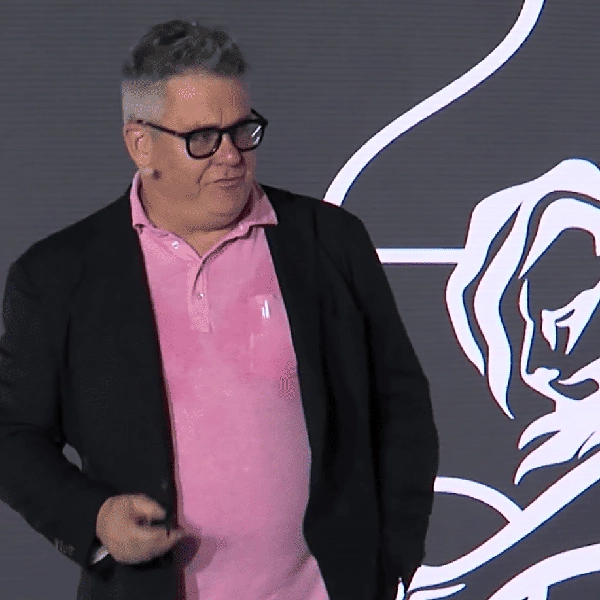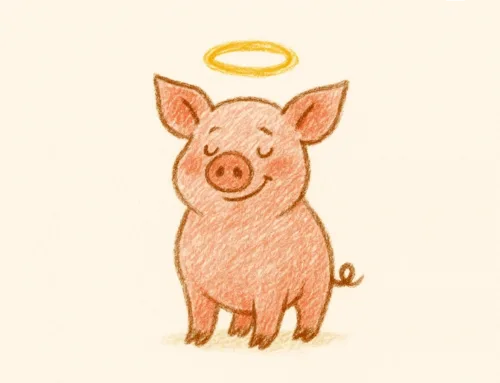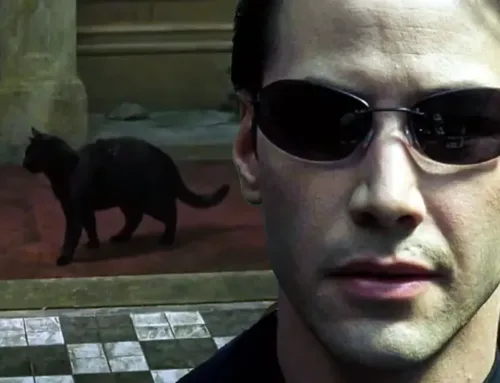 Mark Ritson at WARC/Cannes Lions 2025
Mark Ritson at WARC/Cannes Lions 2025assumed credit: Cannes Lions 2025, Getty Images
As you may well know, Mark Ritson made a much-talked-about presentation at Cannes 2025. It may seem surprising to some that the organisers of the WARC/Cannes Lions events invited him, since he’s on record as saying he would never go. He has also said a number of of things like, ‘Cannes really isn’t that important’. But he was also there in 2024 with the same organisers.
I didn’t see this year’s live version, but I have watched a re-recorded version that Ritson has done for his MiniMBA website [1]. The latter is clearly toned-down from the former and is quite watchable—as in much easier to endure than his blog posts. There’s actually some humility in it.
The 2024 “Creativity is not enough” presentation got Ritson invited back to Cannes and is clearly the starting point for his 2025 “The Creative Dividend: Advertising that pays off”. But this year’s refinements are significant:
- Three simple (but not easy) things are listed as key to advertising ROI:
- Emotion (as the key component of creative quality, which gets elevated in importance this time around)
- Fluency (aka branding, codification, distinctive brand assets, etc)
- Time (as in running a campaign for years)
- All three are backed up with extensive data, particularly Paul Dyson’s 2023 work [2] identifying creative quality as the key ROI variable that advertisers actually have control of, and Andrew Tindall’s new System1 research [3] that identifies Emotion as the key element in creative that drives ROI and branding (Fluency) and campaign duration (Time) as the key ROI multipliers.
Shoulders of Giants
But Ritson does something else that’s even more interesting. At the outset, he lists the ‘dirty dozen’ people whose work is obviously known by every decent marketer—meaning you, fair listener [4]. This is all done tongue-in-cheek of course, but with a few exceptions, these really are the giants of modern advertising effectiveness theory. Even though some of them aren’t that modern.
Caveat
The problem, as I see it, is that Ritson’s presentation stands on the shoulders of giants’ data that is focussed on linear TV advertising, and usually, the big brands that can afford it. Some of it is more than 10 years old. That shouldn’t matter, because the theories should translate to digital and social media. Creative is creative, right?
Except that as Ritson says, much of today’s marketing world is hooked on the ‘pornography of change’. So while marketing’s bright future may have loved his iconoclastic presentation at Cannes, are they still thinking about it six weeks out? Will they actually practice it? Or does it get categorised as old-school thinking?
Today’s young marketers are certainly interested in the quantity of data available to them (where GenAI is quite useful), but not so much in the quality of it (where human judgement is still much more important). Client side marketers are also working under the assumption that they will be in their current CMO position for the current average three-to-four years at best, so they only get one shot at pursuing the best business results. If you’ve got the budget, it might be easier or faster to get creative recognition—maybe even all the way to Cannes.
Final Thoughts
There are two related things in The Creative Dividend I don’t agree with but won’t expand on here:
- Ritson says any emotion elicited by your advertising creative is good for your brand.
- Although it’s curiously missing in the re-recorded version, at Cannes Ritson restated his previously-voiced position that ‘Distinctiveness is more important than differentiation’.
Other than that, this was very well done. At the marketing world’s most celebrated creative event, Ritson brings everyone back to business results.
Great thinkers (even Newton) always stand on the shoulders of other great thinkers. Ritson has assembled a mass of longitudinal research data from multiple sources to make a very persuasive and logical argument that the strategy of The Creative Dividend is the way to maximize ROI from marketing communications investment. And he presents it in an entertaining way with his brand of emotion so we actually listen to it all. Just like all effective marketing does.
- The Creative Dividend, MiniMBA website version.
- Paul Dyson/accelero, “The drivers of profitability”, The Round Up, pages 3-6, 2006-2023.
- System1 and Effie, “The Creative Dividend/How creativity multiplies profit”, 2025.
- I had not heard of Paul Dyson or David Aaker, so that makes me…





